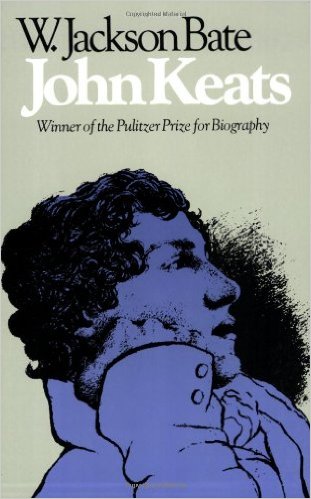Immortal Freemasonry Explained
categories: Cocktail Hour
3 comments
 It was Keats who coined the highfalutin phrase “immortal freemasonry.” What it means in simple English is this: dead writers are alive to us.
It was Keats who coined the highfalutin phrase “immortal freemasonry.” What it means in simple English is this: dead writers are alive to us.
I have no idea why this idea, of connections and literary lineage, kept weaving through my dreams last night. I am in LA at the Associated Writers and Writing Programs conference, an event where my brain is usually at its soggiest, and my dream life is rarely so highbrow. But last night I couldn’t stop thinking, or sleep-thinking, about teachers and students and the way we pass things down over the generations.
Maybe this had to do with reading about my former student Carson Vaughan’s encounter with Jim Harrison before he died. (Nina and I were lucky enough to have a similar encounter with John Updike not long before he died.) Or maybe it has to do with the fact that later today at a ceremony at our school a friend is going to quote from a T.S.Eliot poem I suggested about the way the past is present.
But back to the definition. The idea is that writers are “freemasons,” part of a secret society, and that membership in that society doesn’t end just because you are dead. This can be as simple as picking up a dead writer’s book. Inert print becomes something else when another mind revives it. For me a perfect example is the liveliness of Montaigne, despite being 500 years dead, and I have recently been fond of quoting Emerson’s line about him: “Cut his sentences and they bleed.”
Sometimes though, as in Carson’s case, there is a flesh and blood encounter to compliment the one on the page. And maybe, at AWP 2067, there will be panel called The Legacy of Carson Vaughan, after which the elderly Vaughan will lean on his cane and tell one of the young writers on the panel about his encounter with Harrison, passing the experience on.
And maybe at some point a young woman in our creative writing program will come to me and say that she has re-discovered the poetry of Eliot, not in the dry Wasteland-y way that we were taught it in high school, but in a new fresh way, entering through some of the older less gnarled poems, and finding there something she can adapt and put to use in her own work, almost as if the old poet were talking directly to her.
And if this happened I would surely re-tell a story I have told and written about many times before. I would tell her about the time I visited the great biographer, Walter Jackson Bate, at his farmhouse in New Hampshire and how one evening, after a couple of drinks he read these lines to me from Eliot’s “East Coker” in Four Quartets:
Home is where one starts from. As we grow older
The world becomes stranger, the pattern more complicated
Of dead and living. Not the intense moment
Isolated, with no before and after,
But a lifetime burning in every moment
And not the lifetime of one man only
But of old stones that cannot be deciphered.
There is a time for the evening under starlight,
A time for the evening under lamplight
(The evening with the photograph album).
Love is most nearly itself
When here and now cease to matter.
Old men ought to be explorers
Here and there does not matter
We must be still and still moving
Into another intensity
For a further union, a deeper communion
Through the dark cold and empty desolation,
The wave cry, the wind cry, the vast waters
Of the petrel and the porpoise. In my end is my beginning.
And then I would tell her what Bate said after I thanked him for the reading—”Thank you for listening. It’s been years since I read poetry out loud. The last time I read this piece was at Eliot’s memorial service.”—and how I felt suddenly transported out of my normal life and into some mythical literary stratosphere.
And then, finally, I would say something to my young student, that I’m sure many freemasons have said to new initiates over the years:
“Welcome to the club.”


The chain of transmission adds a link. Beautiful piece.
Very nice…I love the notion of a long-dead writer’s voice coming alive to a reader. Have had that experience myself, while reading along and suddenly realizing there’s a depth and a timbre to the words in my head, a real person speaking in a real voice that’s not mine.
It’s been awhile since I’ve commented, but I loved this post. Contemplating the chain of writers back and back and back…and imagining the line continuing forward and forward and forward. All craft depends on this passing down of technique and passion for the endeavor. As a reader, I want to thank all of you (past, present, and future) who are creating stories and poems and essays (and all the variations) each and every day. I could not live (happily, at least) without good books to read.